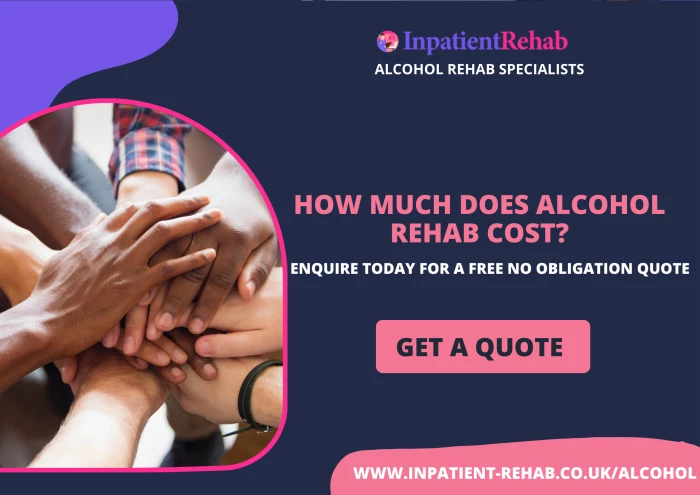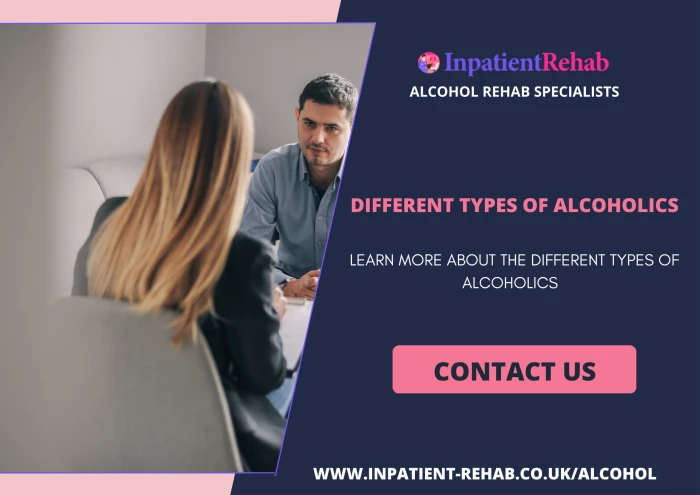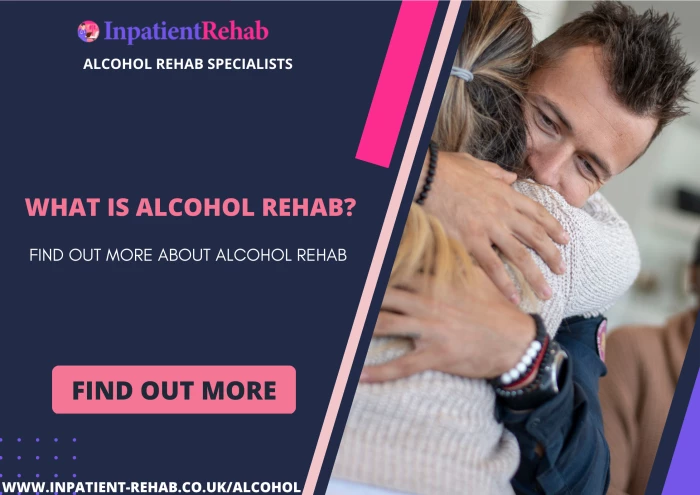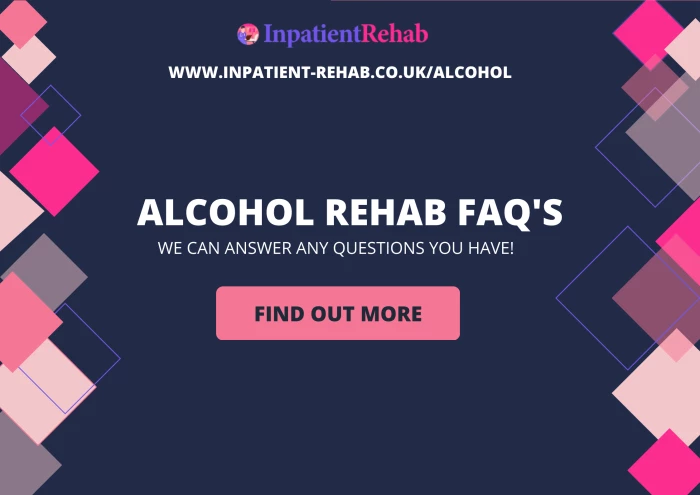
Alcohol Inpatient Treatment in Surbiton
Get in touchAlcoholism is a very real problem in modern life, and as a form of drug addiction, it can require carefully-planned drug and alcohol addiction treatment to make any kind of reliable recovery.
There is no better place to get clean of an addiction than an inpatient alcohol rehab clinic or by following a range of rehab programs.
However, like any kind of specialist treatment programme in Surbiton, not all treatment techniques are going to work in every situation.
Our alcohol abuse inpatient treatment programme is aimed at providing an effective inpatient residential rehab and recovery process: something that can really make a difference.
Before you commit yourself or a loved one to our inpatient addiction treatment programme, it is important to understand what we offer and how we can assist with inpatient alcohol treatment.
The more you know about our inpatient and outpatient programs, the easier it becomes to choose the right alcohol treatment for your situation.
About Our Alcohol Inpatient Rehab Programs
We provide a varied inpatient alcohol rehab treatment program, with many treatment facilities on offer that can help patients through the recovery process.
From cognitive behavioural therapy sessions to wellbeing exercise classes, our treatment providers and medical specialists can deliver the ideal treatment plan for each person suffering from alcohol dependence.
Our inpatient alcohol rehab center boasts a variety of tools to help each addicted person break their dependences.
For example, our primary luxury rehab centre in Rainford offers a gym, a spa, a steam room, a sauna, a series of professional trainers and multiple exercise classes, all of which can help provide more varied treatment techniques.

While not all of our clinics offer all of these facilities, we still aim to deliver effective drug and alcohol rehab treatment options to ensure that any patient can overcome alcoholism.
Whether you see the best results through medical treatment or group therapy, we will have an addiction specialist on standby that can make those options available.
Established in 2017 and headed by a senior executive team of medical professionals and experienced addiction clinical specialists, we understand how to provide treatment for any inpatient and outpatient.
Whether you are receiving treatment for physical health conditions, mental health conditions or wellbeing concerns, we can guide your long-term recovery.
Inpatient Alcohol Rehab Cost
The cost of inpatient alcohol rehab in Surbiton averages at about £10,000-£20,000 per month.
Get a Price for Your Rehab Stay
However, like any kind of treatment program, this is a highly flexible amount that can change dramatically based on a range of outside factors.
Our inpatient rehabs can provide a range of different treatment options and types, and the actual cost of treatment is heavily tied to the length of time you stay.

There are four main factors to consider when looking into residential rehab: the type of treatment you choose, the length of the treatment, any facilities amenities you use, and sometimes the location of the treatment facility itself.
For example, inpatient alcohol rehab may become more expensive if you use a wider range of effective addiction treatment techniques or stay for longer than average.
On the other hand, it can also be far cheaper if your addiction treatment takes root almost immediately.
It is normal to have questions. For example, does a treatment facility accept insurance? Does it offer financial assistance?
Understanding the details behind a rehab facility is important, and our experts can break down everything from financial assistance to rehab costs if you get in touch with them for yourself.
If you need an accurate quote, contact our treatment providers directly to learn more about our drug rehab options.
A free confidential assessment can give you an understanding of what will be involved and how much the process will cost. We can also explain the factors that might influence the overall price of breaking your addiction.
What are the Benefits of Rehab for Alcohol?
Our alcoholism and addiction treatment programme offers a huge range of benefits over other options. We take all forms of drug addiction treatment seriously, providing the best possible treatment plan for each patient.
Our treatment centers are easy to get to from Scotland, Wales, Surbiton and various other areas.
The main benefits of inpatient rehab include the following:
Safe and supportive spaces to deal with substance use problems.
A structured routine and a high level of stability.
Well-trained medical staff that can administer any relevant treatment.
Monitored improvements and carefully-planned treatments.
A range of local support groups and treatment types.
Easy management of alcohol withdrawal symptoms.
Full support for each patient's physical health and any mental health disorder.
Enforced separation from drug use.
Continued support for long-term sobriety.
24/7 Medical supervision.
Multiple methods for treatment and therapy, including CBT and Dialectical Behaviour Therapy.
Personalized treatment plan.
This list is just a few of the major benefits that our alcohol and drug rehab process can provide. As a treatment provider, we understand that each patient requires different things and that alcohol use disorders can require careful management to treat fully.
We offer evidence-based treatments that can help each patient push past alcohol abuse and quit drinking alcohol on their own terms, tackling alcohol use at the source rather than just trying to hide the symptoms of a larger problem.
Our structured programme allows us to provide consistent treatment while also providing flexibility for each patient's specific situation.
If you want to know more about the core benefits of our rehab options in Surbiton, then do not hesitate to contact our treatment team directly and learn more about what we can provide.
Types of Alcoholics
Alcoholism is not a single consistent condition or disorder. It can take a range of different forms and cause all kinds of damage, especially if you develop a drinking dependence at an early age.
In general, there are five stages of alcoholics, some of which can be far easier to pinpoint than others.
While one or two of these alcoholics can still be functional and seem normal on the surface, their condition can get far worse if they never receive proper inpatient alcoholism treatment.
Young Adult Subtype
Alcoholism in young adults is the most prevalent in most countries, covering over 30% of all alcoholics.
These are people who became dependent on drinking at around 20-25 years old, and while they drink alcohol less on average, their occasional binge-drinking days are far more extreme.
This can include people who show no signs of long-term substance abuse but will occasionally slip into binge drinking for a single day.
On these days, this subtype consumes an average of 14 drinks per person in the span of around 24 hours, which can actually cause more damage than "conventional" alcohol consumption habits.
Only around 10% of these alcoholics have sought treatment, and most end up deferring to self-led treatment programmes that few complete.

Functional Subtype
Functional alcoholics appear mostly normal on the surface but are often hiding their addiction by drinking every other day. These drinking days often lead to binges, and withdrawal symptoms can take root once they get into a self-defined drinking routine.
While functional alcoholics can still function normally - with most working full time and almost 50% being married - they are still suffering from an alcohol use disorder that can severely impact their mental health and eventually cause physical harm to their bodies.
Intermediate Familial Subtype
Intermediate familial alcoholics have elevated rates of mental health issues and mental disorders, as well as increased chances of falling into other alcohol abuse habits.
They also tend to have a close family member who also has an alcohol use disorder and are typically from a family with a history of multigenerational alcoholism.
Young Antisocial Subtype
The majority of young antisocial alcoholics have an antisocial personality disorder, leading to an increase in the chance of fights, impulsiveness, or even criminal activity. Note that ASPD can increase the chance of developing a substance use disorder by 21 times.
They drink the most per day on average, binge-drinking for around 80% of the days they end up having a drink. 76% of this subtype are male, and less than half are fully employed.
They boast higher rates of psychiatric disorders and other mental health issues and are far more likely to develop alcohol abuse problems outside of their alcohol use disorder.
Chronic Severe Subtype
Chronic severe alcoholics are rare but are also in an incredibly bad place. They have the highest drinking rates and binge drink on most of their drinking days, often retaining their alcoholism from their teenage years into adulthood.
Over 90% of them continue to drink despite experiencing problems at work, in school, in relationships, or even while driving.
What is Alcohol Rehab?
Alcoholism rehab is a form of intensive treatment designed to cure addiction and dependency. This can involve a range of physical, mental and social treatment options carried out by experienced medical staff.
Alcohol addiction rehab in Surbiton is specifically designed to help alcoholics kick their addictions and live their lives free of dependency. This can be just as important in the early stages of alcoholism as it can be for long-term addicts.

Rehab allows people with severe alcohol addictions to receive treatment tailored to their situation. Most rehabs use similar methods to groups like Alcoholics Anonymous while also employing a range of more direct retreatment methods.
The inpatient alcohol detox process is more than just a medical detoxification. While it may involve medically-assisted detox elements, completing rehab is more about pushing past alcohol and drug abuse.
For more information on how rehab can help you detox safely, please contact our team.
Private Alcohol Rehab
Private rehab (both inpatient and outpatient treatment) provides a more tailored experience. Both are focused on getting the addict the best treatment they can get, as well as preventing future issues like risks of heart disease, liver disease or relapses.
Inpatient rehab provides unique addiction treatments, as well as a setting designed to help alcoholics push past their addictions.
Outpatient options and residential treatment focus on an outpatient setting, usually meaning the patient's home. This enables them to manage their social life and spend more time with family members.
Signs and Symptoms of Alcohol Addiction
The National Institute on Alcohol Abuse and Alcoholism recommends that you see a trained professional for evaluation if you suspect that you have an addiction.
Constant drinking, especially at inappropriate times
Anxiety
Shakiness
Poor coordination
Slurred speech
Impaired memory
A constant desire (and failure) to stop drinking
Secrecy about substance abuse
Risky behaviour, such as drunk driving
Distress at the idea of not having a drink
Withdrawal symptoms after not drinking for a while
If you wish to visit an inpatient treatment center away from your home in Surbiton make sure to get in touch with our experts today.
FAQs
What is Alcoholism?
Alcoholism is an addiction to drinking, usually manifesting as a constant desire to have more, a need to binge drink, or even just dependency on it that causes withdrawal symptoms if not fulfilled.
What are the Different Types of Inpatient Alcohol Rehab Programs?
Inpatient rehab keeps patients at the facility, whereas outpatient treatment allows them to stay at home. Outpatient treatment can often be less effective, since proper treatment is hard to provide in this way.
Inhouse treatment often provides a more controlled experience, which can allow for faster recovery and a greater level of success overall.
Since rehab treatment involves living at the residential treatment site, there are fewer chances to relapse due to the constant observation and care.
What is the Average Length of Stay and Success Rates for Alcohol Inpatient Treatment Programs?
Most inpatient programs require around 90 days on average.
Around 70% or higher of those who remain on a program until cured (and do not drop out early) will be completely free of their addiction once they leave.
It is important to remember when asking 'how long does inpatient alcohol rehab take?' that it all depends on the severity of your addiction and you as an individual.

What is the Ratio of Staff to Patients at Alcohol Inpatient Treatment Programs?
The rate of clients to staff is often between 3:1 and 10:1.
The lower the ratio, the better the individualised care will be.
Are Aftercare and Follow-Up Services Available at Alcohol Inpatient Treatment Programs?
Rehab is effectively a research-based guide to beating an addiction. However, many offer aftercare programs - such as therapy and counselling - to ensure that recent patients can remain free of their dependency in the long term.
How does Alcohol Inpatient Treatment Work?
Inpatients are placed in a highly structured environment designed to help them tear down the habits and needs that are causing their addiction.
These residential rehabilitation facilities supervise them 24/7 and provide relevant support to keep them from relapsing or falling back into old drinking habits.
How Effective is Alcohol Inpatient Treatment?
While the exact numbers are not clear, the general consensus is that inpatient treatment is dramatically more effective than outpatient rehab.
Treating alcohol addiction is different for everyone, but we can find the best methods for you.
Summary
Our addiction inpatient treatment program away from your home in Surbiton is designed to help even the most long-term addicts break their habits in a private and confidential space.
We offer a huge range of treatment methods and unique ways to combat your dependency, as well as a highly structured environment to build new, healthier habits.
We aim to provide effective treatments in every situation, making sure that each patient receives the care they need without their addiction being taken lightly. Alcoholism is a serious issue, and our experts know how to tackle it well.
Searches Associated With Alcohol Addiction Treatment
Inpatient Rehab for Alcohol in Surbiton
Voted Best Alcohol Rehabilitation Center in February 2026
Surbiton Alcohol Rehab Centres
Best Surbiton Alcohol Rehab Clinics
Alcohol Rehab Centers near me
Best Alcohol Rehab Facilities near me
We cover Surbiton (Greater London)
Get in touch
Skip to
Gallery





